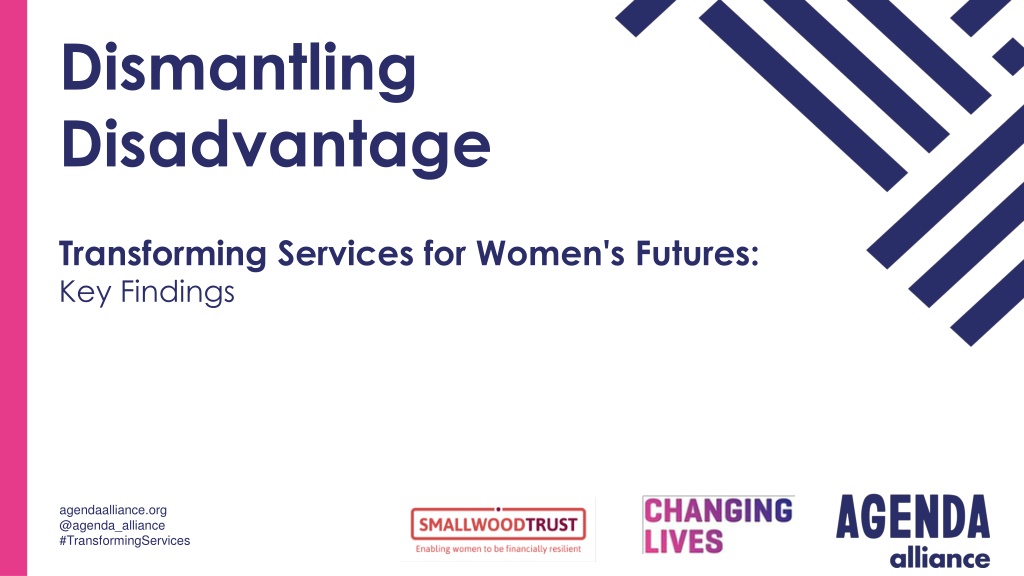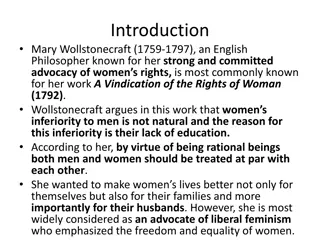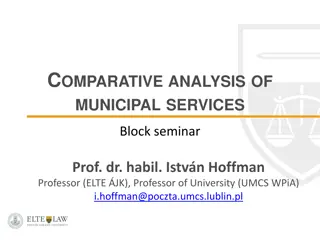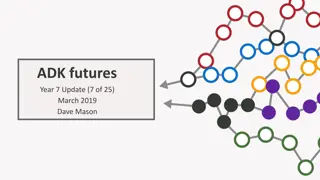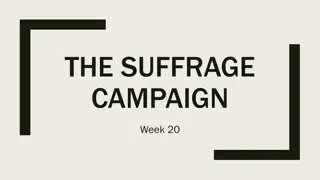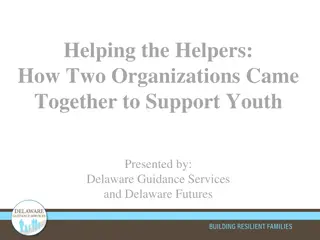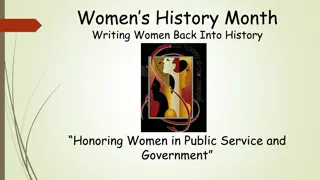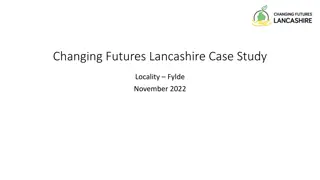Transforming Women's Futures: Addressing Disadvantage in Public Services
The report highlights the challenges faced by women in the North East of England due to factors like austerity, COVID-19, and the cost of living crisis. It emphasizes the disproportionate impact on women's health and well-being, with many facing barriers like stigma, trauma, poverty, and systemic racism when accessing public services. The data reveals alarming gaps in support services for mental health, domestic abuse, and substance misuse, leading to avoidable mortality. Recommendations call for systemic changes focusing on prevention, early intervention, and responsive support services.
Download Presentation

Please find below an Image/Link to download the presentation.
The content on the website is provided AS IS for your information and personal use only. It may not be sold, licensed, or shared on other websites without obtaining consent from the author. Download presentation by click this link. If you encounter any issues during the download, it is possible that the publisher has removed the file from their server.
E N D
Presentation Transcript
Dismantling Disadvantage Transforming Services for Women's Futures: Key Findings agendaalliance.org @agenda_alliance #TransformingServices
Womens unmet needs and regional inequalities Triple Shock Effect Public services in the North East have been disproportionately impacted by: 2. COVID-19 3. Cost-of-living crisis 1. Austerity Between 2009 and 2018, council spending fell by 13% across the whole of England - it fell by 23% in the North East The North East has the highest poverty rate of all regions - 26% In the North East, women can expect to spend 26% of their lives in "not good/ poor" health, compared to 23% of those in England as a whole agendaalliance.org @agenda_alliance #TransformingServices
Womens experiences of public services Women with multiple unmet needs grapple with interconnecting challenges including: Homelessness; unsupported parenthood; substance misuse; poor mental health; child removal; poverty; violence and abuse; and contact with the criminal justice system When accessing services, many of them face barriers, such as: Shame, stigma and discrimination Living with trauma Poverty Systemic racism Inaccessible services Abuse within services agendaalliance.org @agenda_alliance #TransformingServices
The scale and consequences of failing women Our data analysis suggests that, in Northumberland and Tyne and Wear, between 2021 and 2022: 81% of women in need of mental health services missed out on support 76% of women in need of domestic abuse services missed out on support 60% of women in need of drug and alcohol recovery services missed out on support agendaalliance.org @agenda_alliance #TransformingServices
The scale and consequences of failing women: Avoidable mortality Number of women dying due to either suicide, drug poisoning, alcohol, or domestic homicide (age-standardised rate per 100,000) Our data analysis shows that in 2021, the mortality rate for women due to either suicide, drug and alcohol misuse, or domestic homicide was 1.7 times higher in the North East than in England and Wales as a whole agendaalliance.org @agenda_alliance #TransformingServices
Recommendations for systems change 1. Prevention and early intervention 2. Gender-, trauma- and culturally responsive support 3. Services working together 4. Co-production and responding to power dynamics 5. Long-term and sustainable funding and commissioning agendaalliance.org @agenda_alliance #TransformingServices
